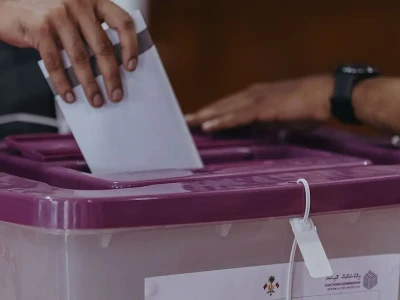
Campaign launched to propose preferential voting for pres elections
The campaign follows a meeting held last Wednesday between President Muizzu and members of the PNC parliamentary group.
Top Stories
A social media campaign has been launched by government officials and supporters calling for a shift from the Maldives’ current two-round presidential election system to a preferential voting system.
The campaign follows a meeting held last Wednesday between President Mohamed Muizzu and members of the PNC parliamentary group. During the meeting, the President outlined several electoral reform proposals, including holding a public vote later this year on the issue, transitioning to a single-round presidential election, and conducting parliamentary and presidential elections concurrently.
Since the meeting, senior government officials and political activists have shared posts on social media under the hashtag “Preferential Voting,” advocating for the introduction of the system. Shared materials include posters and messages highlighting perceived benefits of preferential voting.
According to proponents of the system:
-
Holding only one round of voting would reduce election-related costs.
-
Preferential voting ensures the elected candidate secures more than 50% of support in the first round.
-
Voters can rank candidates in order of preference, potentially allowing broader voter representation.
-
The process is described as being cost-effective and more inclusive.
Preferential voting systems are already used in various countries, including in the presidential election of neighbouring Sri Lanka, the upper house of parliament in India, and across different levels of elections in Australia and Ireland.
In a preferential voting system, voters rank candidates in order of preference (1, 2, 3, etc.). If no candidate receives more than 50% of the first-choice votes, the candidate with the fewest first-choice votes is eliminated. The votes of those who supported the eliminated candidate are then redistributed based on their next preference. This process continues until one candidate has secured more than 50% of the votes.
No official timeline has been confirmed for the proposed vote on electoral reform.




